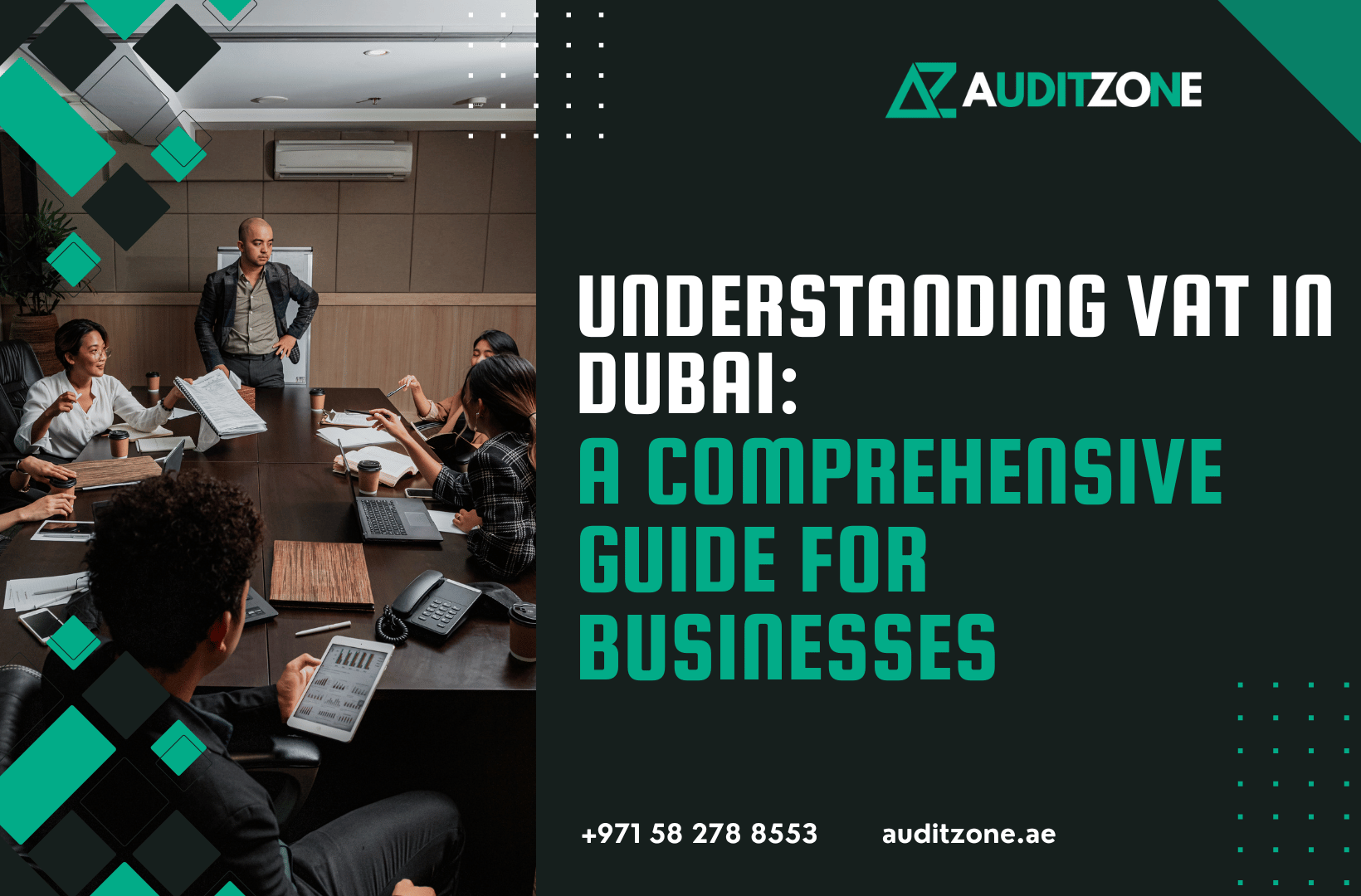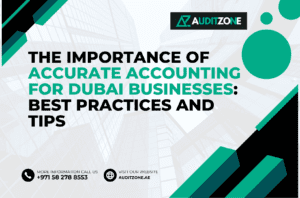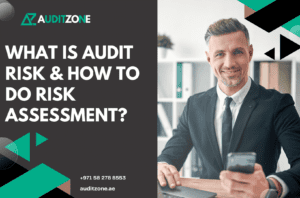Introduction
In recent years, Dubai has emerged as a thriving business hub, attracting entrepreneurs and companies worldwide. With its strategic location, business-friendly policies, and modern infrastructure, a business in Dubai has become an attractive option. However, like any other jurisdiction, Dubai has its taxation system, and one crucial aspect that businesses must understand is the Value Added Tax (VAT) system. This comprehensive guide will delve into the intricacies of VAT in Dubai and its implications for businesses.
What is VAT?
Value Added Tax (VAT) is a consumption tax levied on the value added to goods and services at each stage of production or distribution. It is an indirect tax that the end consumer ultimately bears. VAT is applied at each step when a business purchases raw materials, manufactures a product and sells it to another business. The businesses can claim back the VAT paid on their purchases and are responsible for collecting VAT from their customers.
Implementation of VAT in Dubai
Dubai introduced the VAT system on January 1, 2018, as part of the UAE’s efforts to diversify revenue sources and reduce dependence on oil income. The standard rate of VAT in Dubai is 5%, with certain goods and services either exempted or zero-rated. As a business operating in Dubai, it is essential to understand and comply with the VAT regulations to avoid penalties and legal complications.
VAT Registration
Any business in Dubai with taxable supplies exceeding the mandatory registration threshold must register for VAT with the Federal Tax Authority (FTA). As of the time of writing, the threshold stands at AED 375,000. However, staying updated with the latest regulations is crucial, as they are subject to change.
Registering for VAT involves submitting the necessary documents and information to the FTA, including the company’s revenue, expenses, and turnover. Once registered, the business will receive a Tax Registration Number (TRN) that must be mentioned in all VAT-related transactions.
VAT-Applicable Supplies
In Dubai, most goods and services are subject to the standard 5% VAT rate. However, some essential goods and services fall under zero-rated supplies, meaning VAT is still applicable, but the rate is 0%. Additionally, certain goods and services are exempt from VAT altogether. Businesses must understand the distinction between standard-rated, zero-rated, and exempt supplies to comply with VAT regulations accurately.
Input Tax Credit
One of the significant advantages of VAT is the input tax credit mechanism, which allows businesses to claim back the VAT paid on their purchases. The purchases must be used for taxable supplies to claim the input tax credit. Proper documentation and record-keeping are essential to substantiate the input tax credit claims.
VAT Returns and Payment
Businesses registered for VAT must file periodic VAT returns with the FTA. The frequency of filing depends on the company’s annual turnover. VAT returns should include the VAT collected from customers and the VAT paid on purchases. Filing the returns accurately and within the specified deadlines is crucial to avoid fines and penalties.
Impact on Businesses
The implementation of VAT in Dubai has had a profound impact on businesses. While it may seem like an additional financial burden, it has also led to a more structured and transparent business environment. Companies have had to revamp their accounting systems, ensure compliance, and educate their staff about VAT regulations. The introduction of VAT has also generated new revenue streams for the government, enabling them to invest in infrastructure and public services.
Common Misconceptions about VAT
Over the years, several misconceptions have arisen regarding VAT in Dubai. Some businesses mistakenly believe they are exempt from VAT, while others may not fully understand the zero-rated supplies. Businesses must seek professional guidance and stay informed about changes in VAT regulations to avoid falling into compliance traps.
VAT Audits and Penalties
The FTA conducts regular audits to ensure businesses are complying with VAT regulations. Businesses may face penalties, fines, or even legal actions if discrepancies or non-compliance are found during an audit. It is in the best interest of businesses to maintain accurate records, follow the VAT guidelines diligently, and rectify any errors promptly.
Conclusion
In conclusion, understanding VAT is paramount for businesses operating in Dubai. The VAT system, though initially daunting, has become an integral part of the business landscape in the region. Businesses can ensure a smooth and lawful operation in Dubai by registering for VAT, accurately accounting for VAT-related transactions, and complying with regulations. It is crucial to stay updated with the latest changes in VAT regulations and seek professional advice when needed. Embracing VAT and adopting a proactive approach will not only help businesses avoid penalties but also contribute to the overall economic development of Dubai. So, equip yourself with the knowledge of VAT, and embark on a successful journey in the dynamic business world of Dubai.
Frequently Asked Questions (FAQs) about VAT in Dubai
What is VAT, and how does it work in Dubai?
Value Added Tax (VAT) is a consumption tax levied on the value added to goods and services at each stage of production or distribution. In Dubai, the standard VAT rate is 5%. Businesses collect VAT from their customers and then pay it to the government. They can also claim back the VAT they have paid on their purchases, known as the input tax credit.
When was VAT introduced in Dubai?
Dubai implemented the VAT system on January 1, 2018, as part of the UAE’s efforts to diversify revenue sources and reduce reliance on oil income.
Do all businesses in Dubai need to register for VAT?
No, not all businesses need to register for VAT. Only businesses with taxable supplies exceeding the mandatory registration threshold of AED 375,000 are required to register for VAT with the Federal Tax Authority (FTA).
What are zero-rated supplies?
Zero-rated supplies refer to goods and services still subject to VAT, but the rate is 0%. This means that businesses do not charge VAT on these supplies but can claim back the VAT paid on related expenses.
What are exempt supplies?
Exempt supplies are goods and services that are not subject to VAT at all. Unlike zero-rated supplies, businesses cannot claim back the VAT paid on expenses related to exempt supplies.
How can businesses claim the input tax credit?
To claim the input tax credit, businesses must keep proper documentation of their purchases and ensure they are used for taxable supplies. They can then offset the VAT paid on these purchases against those collected from their customers.
How often do businesses need to file VAT returns?
The frequency of filing VAT returns depends on the business’s annual turnover. Some businesses may need to file returns quarterly, while others may do it monthly.
What happens if a business fails to comply with VAT regulations?
Failure to comply with VAT regulations may lead to penalties, fines, or legal actions by the FTA. Businesses must maintain accurate records and follow the VAT guidelines diligently to avoid such consequences.
Can businesses claim VAT refunds?
Yes, businesses can claim VAT refunds if the VAT they have paid on their purchases exceeds the VAT they have collected from their customers. However, this process requires proper documentation and adherence to the FTA’s guidelines.
Are there any common misconceptions about VAT in Dubai?
Yes, there are several misconceptions about VAT in Dubai, such as believing that all businesses are exempt or not understanding the difference between zero-rated and exempt supplies. Businesses must seek professional advice and stay informed about VAT regulations to avoid compliance issues.
Can businesses voluntarily register for VAT even if they don’t meet the mandatory threshold?
Yes, businesses can voluntarily register for VAT even if their taxable supplies do not exceed the mandatory threshold. Voluntary registration allows them to claim back VAT on their expenses and be perceived as a more credible and transparent entity.
How has VAT impacted the business environment in Dubai?
VAT implementation has led to a more structured and transparent business environment in Dubai. It has encouraged businesses to maintain accurate financial records and adopt best practices.
Can businesses seek professional help to manage their VAT obligations?
Absolutely! Seeking professional help from VAT consultants or tax experts can greatly assist businesses in understanding and fulfilling their VAT obligations correctly.
Can VAT rates change in the future?
VAT rates are subject to change based on government policies and economic conditions. Businesses must stay updated with changes in VAT rates to remain compliant with the law.
Is VAT applicable to all types of businesses in Dubai?
Yes, VAT applies to all businesses in Dubai, regardless of size or industry, as long as their taxable supplies meet the registration threshold.





